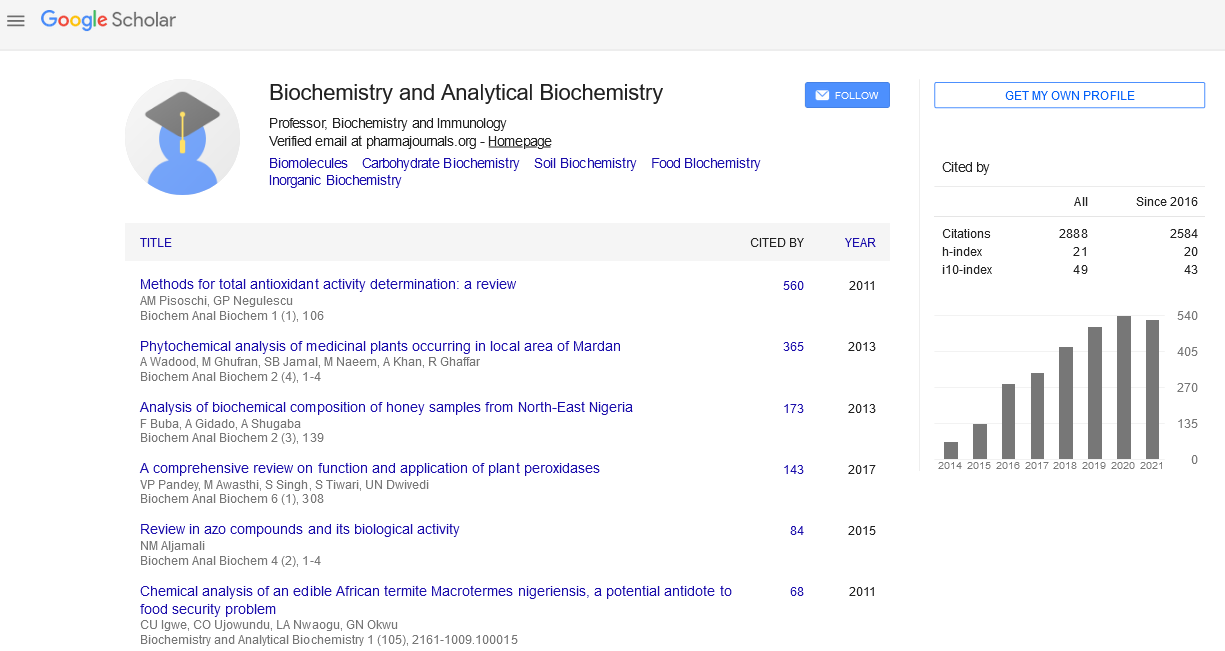Indexed In
- Open J Gate
- Genamics JournalSeek
- ResearchBible
- RefSeek
- Directory of Research Journal Indexing (DRJI)
- Hamdard University
- EBSCO A-Z
- OCLC- WorldCat
- Scholarsteer
- Publons
- MIAR
- Euro Pub
- Google Scholar
Useful Links
Share This Page
Journal Flyer

Open Access Journals
- Agri and Aquaculture
- Biochemistry
- Bioinformatics & Systems Biology
- Business & Management
- Chemistry
- Clinical Sciences
- Engineering
- Food & Nutrition
- General Science
- Genetics & Molecular Biology
- Immunology & Microbiology
- Medical Sciences
- Neuroscience & Psychology
- Nursing & Health Care
- Pharmaceutical Sciences
Abstract
Platelets, Microenvironment and Hepatocellular Carcinoma
Yeliz Yilmaz, Esra Erdal, Nese Atabey and Brian I. Carr
Hepatocellular carcinoma (HCC) is the commonest type of liver cancer and has a high mortality rate. Currently treatment options are limited and new therapies are urgently needed. Platelets are enucleated small cells, derived from mature megakaryocytes and besides their role in thrombosis; they actively take part in carcinogenesis and metastasis. Platelet number in the blood is associated with disease progression, overall survival and HCC subgrouping. Both thrombocytosis and thrombocytopenia are associated with HCC phenotype and size, related with other factors like cirrhosis background. Platelet counts and also platelet-to-lymphocyte ratio (PLR) and neutrophil-tolymphocyte ratio (NLR) are considered in decision making in management. Since platelets also take up nucleotides and cytokines from tumor cells, isolating and studying platelets might provide valuable information for understanding tumor cells and may help to develop personalized treatment. Anticoagulants and antiplatelet agents are commonly used potential cancer therapeutics, which are also being studied for HCC treatment. Thus, platelets are one aspect of a complex microenvironmental milieu, the affects the biology of HCC and other tumors.


